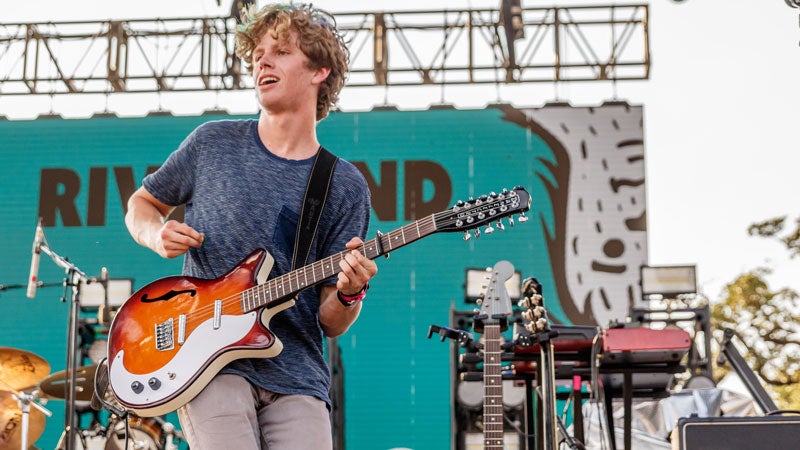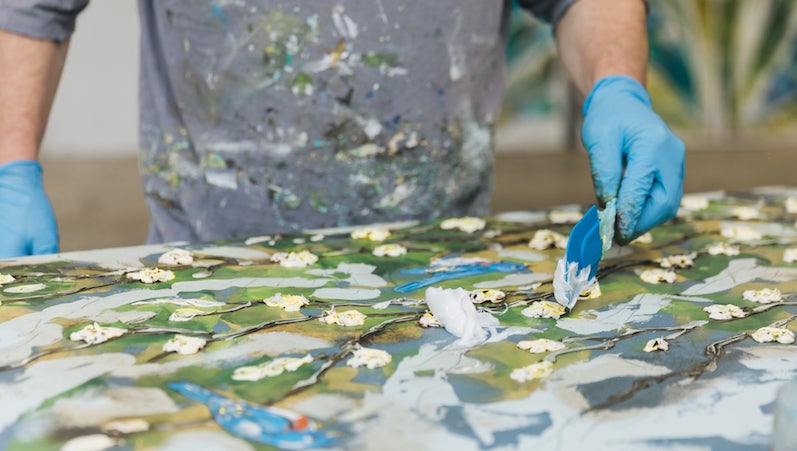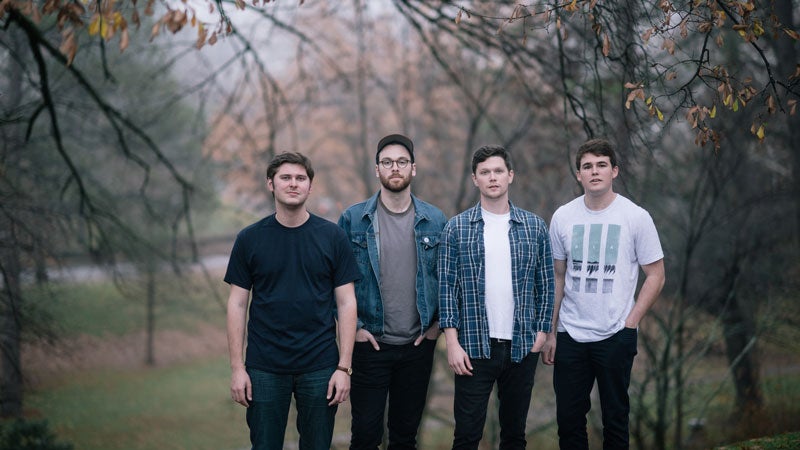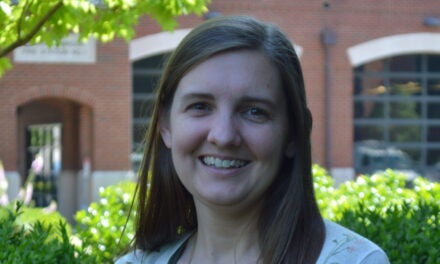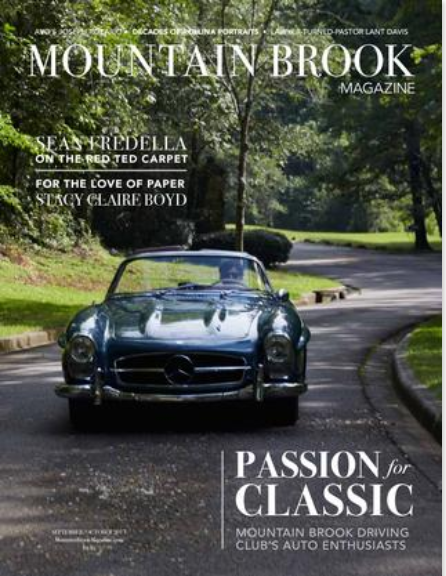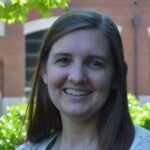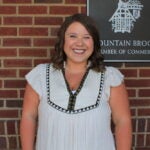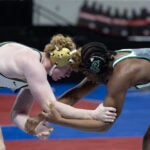Like most preteens, Max Simon relied on his parents for rides to meet up with friends. Unlike other kids, though, he and classmates Price Pewitt and Stanton Langley were often headed for The Nick, a dive bar in Highland Park known for live music, on a weeknight. They’d squeeze in some math homework before going on stage to jam out to their own blend of power pop and alternative rock—and then wake up the next morning and go to junior high like any other 14 year old.
Just a few years later these three, plus drummer Sims Ruffino, would find themselves on stage at Sloss Fest on the bill with bands they’ve long admired—a long way from when playing at Mafiaozo’s in Crestline after 3:00 in the afternoon or at a Halloween party on Dexter Avenue was a big deal. In the four years in between, their band Riverbend has not just been the brotherhood the high school seniors have grown up with, but also the soundtrack to their teenage years. “The band has been there consistently through my life journey,” Price says. “(I can) see where albums and EPs correlate with where I was. It’s a like a scrapbook.”
In the same way that most people associate a certain pop song with a school dance or Friday nights with high school friends, it’s their own songs that are tied to formative memories. “And what’s crazy is other people’s school dance song can be a Riverbend song,” Max notes. “Not only are we able to create music that we all love playing with each other, but somehow people have latched onto it (too).”
 That includes “Hideaway,” a Riverbend tune that has become a community anthem of sorts. It’s the song everyone seems to know the lyrics to, at the perfect tempo to jump up and down to and bop your head to. But a 15-year-old Stanton had no idea that would be the case when he wrote the lyrics stream-of-consciousness style on breaks at work the afternoon before a show at The Nick. “That night I tried to remember the lyrics, and whatever those were were the ones we stuck with,” Stanton recalls.
That includes “Hideaway,” a Riverbend tune that has become a community anthem of sorts. It’s the song everyone seems to know the lyrics to, at the perfect tempo to jump up and down to and bop your head to. But a 15-year-old Stanton had no idea that would be the case when he wrote the lyrics stream-of-consciousness style on breaks at work the afternoon before a show at The Nick. “That night I tried to remember the lyrics, and whatever those were were the ones we stuck with,” Stanton recalls.
Looking back, music is also where the band members turned their teenage angst. “Whatever was going on at home, if you were tired of your teacher yelling at you or your parents fighting, we would go into a garage and play so loud we couldn’t hear anything,” Price says. “And not hear anything for hours after that,” Max quips. “We’d come in, and as everyone was tuning we’d all vent about our girlfriends and our parents,” Price continues. “And now to see where it’s cultivated into something bigger than ourselves is so weird.”
 The band’s roots go back to Crestline Elementary where Stanton and Max each knew the other as “the other kid at my school who plays guitar”—an unstated rivalry of sorts that they got over by their first “gig” together at the school talent show as fifth graders. “We had to change the lyrics from a song from ‘cold beer’ to ‘cold Coke,’ which is super rock-and-rock,” Max recalls light heartedly. By junior high the duo realized that another classmate, Price, was playing bass, and he joined in on the fledgling band through Mason Music before they broke off on their own to practice and get gigs.
The band’s roots go back to Crestline Elementary where Stanton and Max each knew the other as “the other kid at my school who plays guitar”—an unstated rivalry of sorts that they got over by their first “gig” together at the school talent show as fifth graders. “We had to change the lyrics from a song from ‘cold beer’ to ‘cold Coke,’ which is super rock-and-rock,” Max recalls light heartedly. By junior high the duo realized that another classmate, Price, was playing bass, and he joined in on the fledgling band through Mason Music before they broke off on their own to practice and get gigs.
Sims was in a rival band at the time until one day when he texted Price about a girl. “Two hours later we were talking nonsense and we became best friends,” Sims says. The deal was sealed one night at Stanton’s house. “We jammed, hit it off instantly playing ‘Black Sabbath’ by Pink Floyd, and before I even consulted the band I texted Sims to be in the band,” Stanton says. “I went the bathroom and came back, and Sims was our drummer,” Max jokes.
 Speaking of Stanton’s house, it was actually his mom who came up with the name Riverbend. “We couldn’t think of anything better,” Stanton says. “All our ideas were terrible. One day my mom says, ’Why don’t you guys just call your band Riverbend because it’s the name of the street you practice on?’ I said, ‘Oh mom, that’s stupid.’ At the next show I couldn’t think of anything to say, so I said, ‘Riverbend.’” And it stuck.
Speaking of Stanton’s house, it was actually his mom who came up with the name Riverbend. “We couldn’t think of anything better,” Stanton says. “All our ideas were terrible. One day my mom says, ’Why don’t you guys just call your band Riverbend because it’s the name of the street you practice on?’ I said, ‘Oh mom, that’s stupid.’ At the next show I couldn’t think of anything to say, so I said, ‘Riverbend.’” And it stuck.
The guys behind Riverbend describe their sound as an average of all of their tastes or the “common denominator of all the strange stuff we listen to,” Max says. Their playlists have all evolved over the years, but these days Max favors “out there stuff, jazz, experimental, stereo lab I’m trying to implement into a pop sound… But it still just winds up being noisy. I am the resident noise maker.” We should note he was also into bluegrass at one time. Price’s core is Radiohead and “psyche jam,” particularly “psych music and old garage-y sound with a new synth pop element” he’s hearing out of Australia.
 Sims, whose dad was a concert promoter, still favors the Southern rock—Allman Brothers and Widespread Panic—that he was raised on. And Stanton is more of an “old fashioned rock and pop rock” guy—the one with the most streamlined taste in music.
Sims, whose dad was a concert promoter, still favors the Southern rock—Allman Brothers and Widespread Panic—that he was raised on. And Stanton is more of an “old fashioned rock and pop rock” guy—the one with the most streamlined taste in music.
In their earlier years, Riverbend songs tended to all follow the same formula. Max would play a riff on guitar, Stanton would write lyrics, and they’d bring that to the band. Now though they’re all dipping their toes into song writing—and mixing up anything and everything they can. Often they will all jam out something together that turns into a song, or one of the guys comes up with an idea and brings to the group to work on it together. They’re also working with producers Ken Johnson and Skid Mills out of Nashville to collaborate on their song writing.
In all of their music there’s a lot more sound experimentation now too. “If you listen to our first two EPs, you would never ever think there is a room for a synthesizer in our music, but if you try hard enough and make them listen enough it will happen,” Max says.
 “Figurine,” the first track on their 2018 EP “The Extra Mile,” shows that off their next-level sound well. “There’s weird ambient guitar and droning synths and things that before you never heard (from us),” Max explains. “The whole song we are all on different pages. It comes together, but it’s more of a soundscape of a song,” Price says. “Surrender,” also on the same EP, fits that mold, or lack of mold, too. “The breakdown of that song is one of our best musical moments on tape. There’s interplay between the bass and the drums that isn’t anywhere else. Every time we click into that I get so excited,” Max says.
“Figurine,” the first track on their 2018 EP “The Extra Mile,” shows that off their next-level sound well. “There’s weird ambient guitar and droning synths and things that before you never heard (from us),” Max explains. “The whole song we are all on different pages. It comes together, but it’s more of a soundscape of a song,” Price says. “Surrender,” also on the same EP, fits that mold, or lack of mold, too. “The breakdown of that song is one of our best musical moments on tape. There’s interplay between the bass and the drums that isn’t anywhere else. Every time we click into that I get so excited,” Max says.
As much as playing to a Birmingham audience at venues like Zydeco and Workplay has been a major step in their journey, these days it’s festivals and playing the stage outside of town that are most formative for Riverbend. That and Sloss Fest last year—that was a big jump for them. “Sometimes music can be a lonely world, but when you are engulfed in other people there to see your music and having fun with other bands who are more bad ass than you are and want to help you, those are the shows that go down in your history book,” Price says.
“It’s literally the best feeling in the world,” Sims echoes, ”being up on stage with your three best friends and seeing people react to it is such a rush of adrenaline, and then to come off the stage and be around other musicians that are doing the same thing and are maybe better than you are and hearing them being able to relate is such an incredible feeling of comradery.”
And, as Sims would tell you, they are all “hopelessly addicted to it.”
Find Riverbend show listings and more at riverbendofficial.com or @riverbend_official on social media, and listen to their work on Spotify, BandCamp or Sound Cloud.
Hope in Haiti
Last summer Riverbend travelled to Haiti with Project House of Hope as a part of its mission to give people not just things not to just to live but to live for. And for Riverbend, of course, that meant teaching music. “It was one of the most beautiful experiences ever. You could only point and speak in one of the four Creole words you knew, but you didn’t need the words,” Max recalls.
“It was incredible to see their reaction when you hand them a guitar for the first time, and show them out to play a chord. It takes me back to when I was 4 and my dad was showing me how to play.” Sims says. “And kids immediately picked it up when I couldn’t even speak English to them.”

